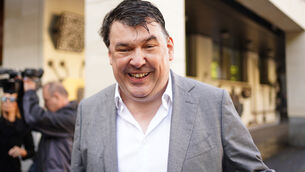The Italian community in Ireland is joyfully resurrected and takes its place on top of the world
‘How bitter this bread tastes’, according to one of those emigrant songs. They used to eat bread and live miserably as they sent that extra dollar home where, hopefully, somebody would mind it or spend it sensibly.
Last Christmas I was in Frankfurt where the driver of the bus that brought us from the city centre to the airport, not surprisingly, was Italian.














